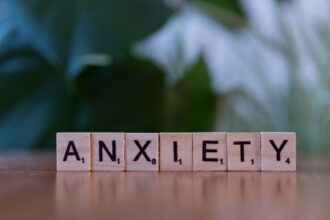Emotional isolation is a complex phenomenon that can creep into your life without you even realizing it. It often manifests as a feeling of disconnection from those around you, even when you are physically present. You might find yourself surrounded by friends and family yet still feel an overwhelming sense of loneliness.
This disconnect can stem from various factors, including past traumas, unresolved conflicts, or simply the fast-paced nature of modern life that leaves little room for genuine emotional connection. Understanding emotional isolation is crucial because it allows you to recognize its presence in your life and take steps to address it. At its core, emotional isolation is not just about being alone; it’s about feeling emotionally cut off from others.
You may have experienced moments where you wanted to share your thoughts or feelings but felt unable to do so. This inability to connect can lead to a cycle of withdrawal, where you retreat further into yourself, making it even harder to reach out. Recognizing this pattern is the first step toward breaking free from the chains of emotional isolation.
By acknowledging your feelings and understanding their roots, you can begin to navigate the complexities of your emotional landscape.
Key Takeaways
- Emotional isolation is the feeling of being disconnected from others and can lead to mental health issues.
- Signs of emotional isolation in relationships include withdrawal, lack of communication, and feeling misunderstood.
- Emotional isolation can have a significant impact on mental health, leading to depression, anxiety, and low self-esteem.
- Communication in relationships can be affected by emotional isolation, leading to misunderstandings and conflicts.
- Technology can contribute to emotional isolation by replacing face-to-face interactions and creating a false sense of connection.
Signs and Symptoms of Emotional Isolation in Relationships
Identifying the signs of emotional isolation in your relationships can be challenging, especially when you are deeply entrenched in the experience. One of the most common symptoms is a persistent feeling of loneliness, even when you are surrounded by loved ones. You might notice that conversations feel superficial or that you struggle to share your true feelings with those closest to you.
This disconnect can lead to frustration and sadness, as you yearn for deeper connections but feel unable to achieve them. Another sign of emotional isolation is a tendency to withdraw from social interactions altogether. You may find yourself declining invitations or avoiding gatherings, preferring the comfort of solitude over the discomfort of feeling disconnected in a crowd.
This withdrawal can create a vicious cycle; the more you isolate yourself, the harder it becomes to reach out and reconnect with others. Recognizing these signs is essential for taking proactive steps toward rebuilding your emotional connections and fostering healthier relationships.
The Impact of Emotional Isolation on Mental Health

The effects of emotional isolation on mental health can be profound and far-reaching.
The lack of meaningful connections can exacerbate negative thought patterns, making it difficult for you to see a way out of your emotional turmoil.
You may find yourself ruminating on your feelings of loneliness, which can further entrench you in a cycle of despair. Moreover, emotional isolation can impact your self-esteem and sense of self-worth. When you feel disconnected from others, it’s easy to internalize those feelings as a reflection of your value as a person.
You might start to believe that you are unworthy of love or connection, which can lead to further withdrawal and isolation. Understanding this impact is crucial for recognizing the importance of addressing emotional isolation in your life and seeking ways to foster healthier connections.
How Emotional Isolation Affects Communication in Relationships
| Emotional Isolation Level | Communication Effect |
|---|---|
| Low | Open and effective communication |
| Moderate | Decreased emotional connection and understanding |
| High | Communication breakdown, misunderstandings, and conflict |
Communication is the lifeblood of any relationship, and emotional isolation can severely hinder your ability to express yourself effectively. When you feel isolated, you may struggle to articulate your thoughts and feelings, leading to misunderstandings and frustration between you and your loved ones. This breakdown in communication can create a barrier that makes it even more challenging to connect with others on an emotional level.
Additionally, emotional isolation can lead to a tendency to avoid difficult conversations altogether. You might find yourself bottling up your feelings or resorting to passive-aggressive behavior instead of addressing issues head-on. This avoidance can create a toxic cycle where unresolved conflicts fester, further deepening your sense of isolation.
Recognizing how emotional isolation affects your communication patterns is essential for breaking free from this cycle and fostering healthier interactions with those around you.
The Role of Technology in Emotional Isolation
In today’s digital age, technology plays a dual role in emotional isolation. On one hand, it offers unprecedented opportunities for connection; on the other hand, it can exacerbate feelings of loneliness and disconnection. You may find yourself scrolling through social media feeds filled with curated images of happiness and connection while feeling increasingly isolated in your own life.
This contrast can heighten feelings of inadequacy and loneliness, as you compare your reality to the seemingly perfect lives of others. Moreover, technology often replaces face-to-face interactions with virtual ones, which can lack the depth and intimacy necessary for genuine emotional connection. While texting or video calls can help maintain relationships over long distances, they may not provide the same level of emotional support as in-person interactions.
Recognizing the role technology plays in your emotional landscape is crucial for finding a balance that fosters genuine connections while minimizing feelings of isolation.
Overcoming Emotional Isolation in Relationships

Overcoming emotional isolation requires intentional effort and a willingness to confront uncomfortable feelings. One effective strategy is to practice vulnerability by sharing your thoughts and emotions with trusted friends or family members. Opening up about your experiences can help bridge the gap between you and others, fostering deeper connections and understanding.
It’s important to remember that vulnerability is not a sign of weakness; rather, it is a courageous step toward building stronger relationships. Additionally, engaging in activities that promote connection can be beneficial in overcoming emotional isolation. Whether it’s joining a club, participating in group activities, or volunteering for a cause you care about, these experiences can help you meet new people and forge meaningful connections.
By actively seeking out opportunities for social interaction, you can gradually break down the walls of isolation and cultivate a sense of belonging in your life.
Seeking Professional Help for Emotional Isolation
Sometimes, overcoming emotional isolation requires professional support. A therapist or counselor can provide valuable insights and tools to help you navigate your feelings and develop healthier coping strategies. They can assist you in identifying the root causes of your emotional isolation and guide you toward building more fulfilling relationships.
Seeking help is not a sign of weakness; rather, it demonstrates a commitment to improving your mental health and overall well-being. In therapy, you may explore various techniques such as cognitive-behavioral therapy (CBT) or mindfulness practices that can help shift negative thought patterns associated with emotional isolation. These approaches can empower you to challenge unhelpful beliefs about yourself and foster a more positive outlook on relationships.
By investing in professional support, you are taking an important step toward breaking free from the grip of emotional isolation.
Building Emotional Intimacy in Relationships
Building emotional intimacy is essential for combating emotional isolation in relationships. Emotional intimacy involves sharing your innermost thoughts, feelings, and experiences with others in a safe and supportive environment. To cultivate this intimacy, consider setting aside dedicated time for meaningful conversations with loved ones.
Additionally, engaging in shared experiences can strengthen emotional bonds between you and others. Whether it’s participating in a hobby together or embarking on new adventures, these shared moments create lasting memories that foster connection.
By prioritizing emotional intimacy in your relationships, you can create an environment where both you and your loved ones feel valued and understood.
The Connection Between Emotional Isolation and Physical Health
The link between emotional isolation and physical health is often overlooked but is incredibly significant. Research has shown that individuals who experience chronic loneliness are at a higher risk for various health issues, including cardiovascular disease, weakened immune function, and even premature mortality. When you feel emotionally isolated, stress levels can rise, leading to physical symptoms such as fatigue, headaches, or digestive issues.
Moreover, emotional isolation can impact lifestyle choices that contribute to overall health. You may find yourself less motivated to engage in physical activity or maintain healthy eating habits when feeling disconnected from others. Recognizing this connection between emotional well-being and physical health is crucial for taking proactive steps toward improving both aspects of your life.
Creating a Supportive Environment for Overcoming Emotional Isolation
Creating a supportive environment is essential for overcoming emotional isolation in your life. Surrounding yourself with understanding individuals who encourage open communication can make a significant difference in how you navigate your feelings. Consider reaching out to friends or family members who have demonstrated empathy and support in the past; their presence can provide comfort during challenging times.
Additionally, fostering an environment that promotes vulnerability is key to breaking down barriers associated with emotional isolation. Encourage open discussions about feelings within your social circles and create spaces where everyone feels safe expressing themselves without fear of judgment. By cultivating this supportive atmosphere, you empower both yourself and others to confront their emotions openly and work toward building stronger connections.
The Importance of Addressing Emotional Isolation in Relationships
Addressing emotional isolation in relationships is vital for fostering healthy connections and overall well-being. Ignoring these feelings can lead to long-term consequences that affect not only your mental health but also the quality of your relationships with others. By taking proactive steps to confront emotional isolation head-on, you demonstrate a commitment to nurturing meaningful connections that enrich your life.
Ultimately, recognizing the signs of emotional isolation and understanding its impact on various aspects of life allows you to take control of your emotional landscape. By seeking support, practicing vulnerability, and prioritizing communication within your relationships, you pave the way for deeper connections that combat loneliness and foster genuine intimacy. Embracing this journey toward connection will not only enhance your relationships but also contribute positively to your overall mental and physical health.
Emotional isolation in relationships can be a challenging issue, often leading to feelings of loneliness and disconnection even when partners are physically present. This phenomenon can stem from various factors, including communication breakdowns, unresolved conflicts, or individual emotional struggles. For those interested in exploring this topic further, an insightful article on emotional isolation and its impact on relationships can be found on Unplugged Psychology’s website. This resource delves into the psychological underpinnings of emotional isolation and offers strategies for overcoming it. To read more, visit the article on Unplugged Psychology.
WATCH THIS! Hyper-Independence Is Not Strength
FAQs
What is emotional isolation in relationships?
Emotional isolation in relationships refers to a situation where one or both partners feel disconnected, unsupported, or misunderstood by their significant other. This can lead to feelings of loneliness, sadness, and a lack of intimacy in the relationship.
What are the signs of emotional isolation in a relationship?
Signs of emotional isolation in a relationship may include a lack of communication, feeling unheard or unappreciated, a lack of emotional support, and a sense of distance or disconnection from one’s partner.
What causes emotional isolation in relationships?
Emotional isolation in relationships can be caused by a variety of factors, including poor communication, unresolved conflicts, lack of empathy, differing emotional needs, and external stressors such as work or family issues.
How can emotional isolation impact a relationship?
Emotional isolation can have a significant impact on a relationship, leading to feelings of resentment, decreased intimacy, increased conflict, and ultimately, the breakdown of the relationship if not addressed.
What are some ways to address emotional isolation in a relationship?
Addressing emotional isolation in a relationship may involve open and honest communication, seeking couples therapy, practicing empathy and active listening, setting boundaries, and prioritizing quality time together. It’s important for both partners to be willing to work on the relationship and make necessary changes.




